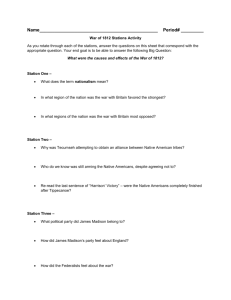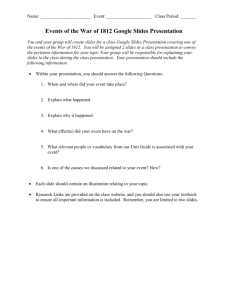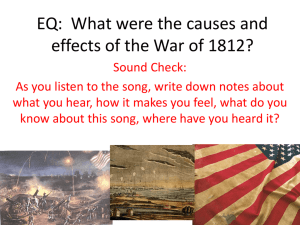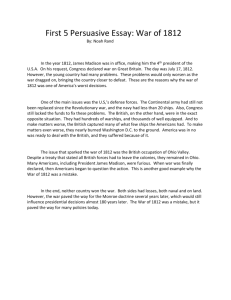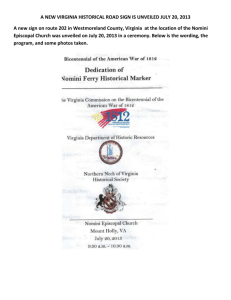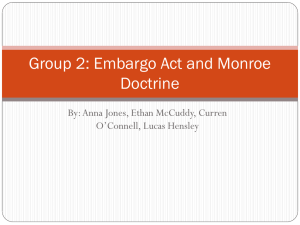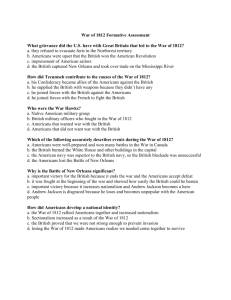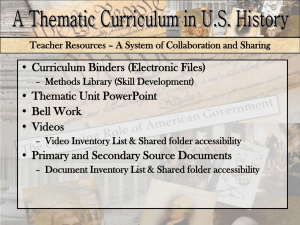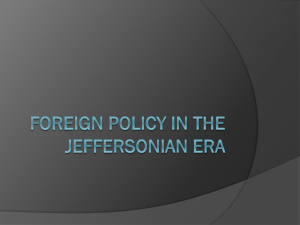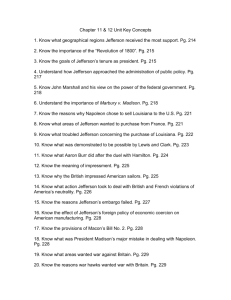Effects of the War of 1812 - Honey Creek Community School
advertisement
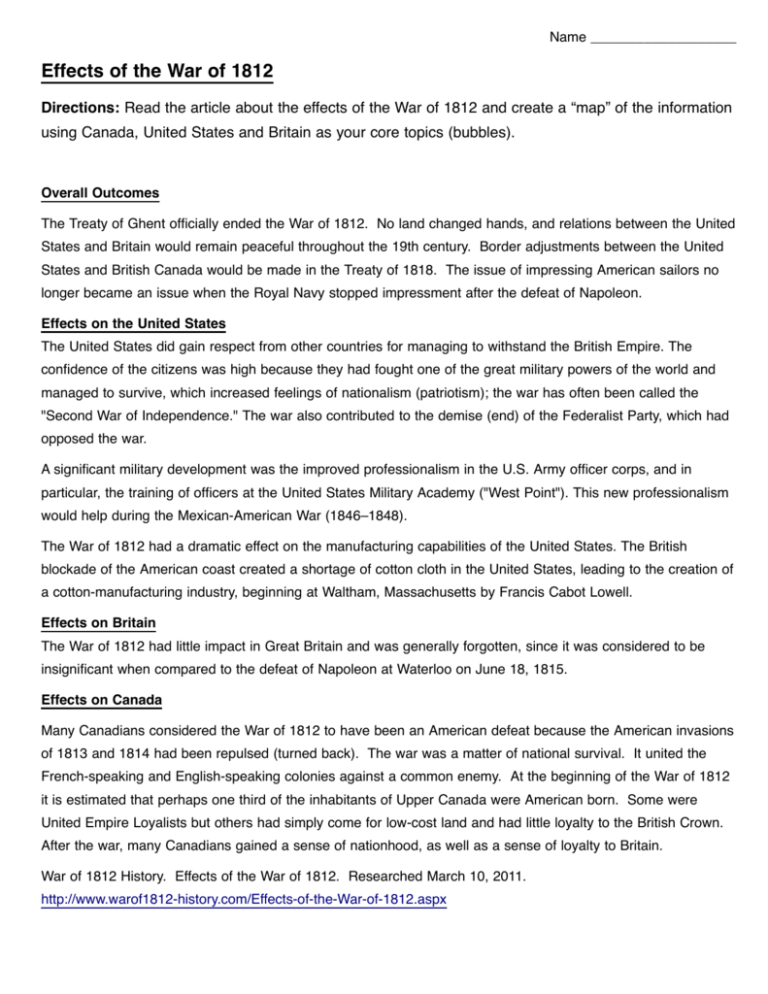
Name ___________________ Effects of the War of 1812 Directions: Read the article about the effects of the War of 1812 and create a “map” of the information using Canada, United States and Britain as your core topics (bubbles). Overall Outcomes The Treaty of Ghent officially ended the War of 1812. No land changed hands, and relations between the United States and Britain would remain peaceful throughout the 19th century. Border adjustments between the United States and British Canada would be made in the Treaty of 1818. The issue of impressing American sailors no longer became an issue when the Royal Navy stopped impressment after the defeat of Napoleon. Effects on the United States The United States did gain respect from other countries for managing to withstand the British Empire. The confidence of the citizens was high because they had fought one of the great military powers of the world and managed to survive, which increased feelings of nationalism (patriotism); the war has often been called the "Second War of Independence." The war also contributed to the demise (end) of the Federalist Party, which had opposed the war. A significant military development was the improved professionalism in the U.S. Army officer corps, and in particular, the training of officers at the United States Military Academy ("West Point"). This new professionalism would help during the Mexican-American War (1846–1848). The War of 1812 had a dramatic effect on the manufacturing capabilities of the United States. The British blockade of the American coast created a shortage of cotton cloth in the United States, leading to the creation of a cotton-manufacturing industry, beginning at Waltham, Massachusetts by Francis Cabot Lowell. Effects on Britain The War of 1812 had little impact in Great Britain and was generally forgotten, since it was considered to be insignificant when compared to the defeat of Napoleon at Waterloo on June 18, 1815. Effects on Canada Many Canadians considered the War of 1812 to have been an American defeat because the American invasions of 1813 and 1814 had been repulsed (turned back). The war was a matter of national survival. It united the French-speaking and English-speaking colonies against a common enemy. At the beginning of the War of 1812 it is estimated that perhaps one third of the inhabitants of Upper Canada were American born. Some were United Empire Loyalists but others had simply come for low-cost land and had little loyalty to the British Crown. After the war, many Canadians gained a sense of nationhood, as well as a sense of loyalty to Britain. War of 1812 History. Effects of the War of 1812. Researched March 10, 2011. http://www.warof1812-history.com/Effects-of-the-War-of-1812.aspx
